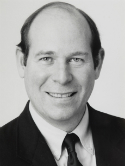Assessing the predictive value of clinical complete response to neoadjuvant therapy for rectal cancer: An analysis of 488 patients Journal Article
| Authors: | Hiotis, S. P.; Weber, S. M.; Cohen, A. M.; Minsky, B. D.; Paty, P. B.; Guillem, J. G.; Wagman, R.; Saltz, L. B.; Wong, W. D. |
| Article Title: | Assessing the predictive value of clinical complete response to neoadjuvant therapy for rectal cancer: An analysis of 488 patients |
| Abstract: | BACKGROUND: Patients with transmural or node-positive rectal cancer benefit from the addition of chemoradiation to surgical resection. Administration of the chemoradiation (combined modality therapy) preoperatively has gained popularity in recent years. Some patients undergo apparent complete tumor regression after preoperative combined modality therapy, and controversy exists about the proper management of these patients. Some investigators have proposed that such patients should simply be observed and not undergo resection. STUDY DESIGN: The purpose of this study was to determine the significance of clinical complete response to preoperative combined modality therapy. Specifically, we have attempted to determine the frequency with which a clinical complete response (based on the absence of detectable tumor on preoperative digital rectal examination and proctoscopy) correlates with a pathologic complete response (based on the absence of cancer cells in the resected specimen). A retrospective review of the clinical and pathologic characteristics of 488 patients from the Memorial Sloan-Kettering prospective colorectal database who received preoperative chemoradiation followed by resection for primary rectal cancer was performed. The indications for preoperative therapy included dinical or ultrasound T3 or T4 tumors or node-positive disease. RESULTS: The clinical complete response rate to preoperative therapy was 19%. All patients underwent resection subsequent to preoperative therapy regardless of response. The pathologic complete response rate among all patients was 10%. The pathologic complete response rate among dinical complete responders was 25%. Clinical complete response was a significant predictive factor for pathologic complete response, but the majority (75%) of dinical complete responders had persistent foci of tumor that were not detectable on preoperative examination or proctoscopy. CONCLUSIONS: Clinical complete response to preoperative therapy as determined by preoperative digital rectal examination and proctoscopy or EUA is not an accurate predictor of pathologic complete response. A significant percentage of dinical complete responders have persistent deep tumors or nodal involvement. We do not recommend making treatment decisions based solely on the absence of clinically palpable or visible tumor after chemoradiation. Our data suggest that all acceptable-risk patients with a diagnosis of primary rectal cancer should undergo resection, regardless of their response to preoperative therapy. © 2002 by the American College of Surgeons. |
| Keywords: | adult; cancer survival; controlled study; treatment outcome; aged; aged, 80 and over; middle aged; cancer surgery; retrospective studies; major clinical study; fluorouracil; treatment planning; antineoplastic agents; cancer adjuvant therapy; preoperative care; neoadjuvant therapy; treatment indication; medical decision making; radiotherapy dosage; retrospective study; correlation analysis; neoplasm, residual; rectum carcinoma; rectal neoplasms; rectoscopy; humans; human; male; female; priority journal; article |
| Journal Title: | Journal of the American College of Surgeons |
| Volume: | 194 |
| Issue: | 2 |
| ISSN: | 1072-7515 |
| Publisher: | Elsevier Science, Inc. |
| Date Published: | 2002-02-01 |
| Start Page: | 131 |
| End Page: | 136 |
| Language: | English |
| DOI: | 10.1016/s1072-7515(01)01159-0 |
| PUBMED: | 11848629 |
| PROVIDER: | scopus |
| DOI/URL: | |
| Notes: | Presented at the American College of Surgeons 86th Annual Clinical Congress; 2000 Oct 22-27; Chicago, IL -- Export Date: 14 November 2014 -- Source: Scopus |
Altmetric
Citation Impact
BMJ Impact Analytics
MSK Authors
Related MSK Work








